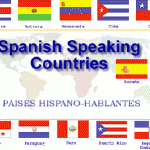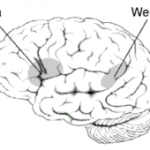Blog 4 (Andi Laidlaw, Adam Gilmore, Summer Mutawe, Cristo Avila)
Linkguistics!
Accents and Dialects:
Is there such a thing as a “gay accent?” I wouldn’t even touch this question were there not a decent amount of scholarly research about it. The notion of “talking gay,” after all, is a staple of homophobic parody. So before going further, let me state that I believe gay men speak with as wide an array of voices as heterosexual men. I don’t give credence to the idea of a universal “gay voice.” Read more
Here’s another interesting perspective on GayDialect:
http://www.macleans.ca/society/of-lisps-and-linguistics-the-power-of-the-gay-voice/
More on accents and dialects:
http://media.her.ie/wp-content/uploads/2014/04/tumblr_m9ujoh5EF11qcazydo3_500.gif
http://media.tumblr.com/tumblr_mf6s5s8Xbw1rol1w1.gif
Abbrevs and Misplelings:
When two friends created the site I Can Has Cheezburger?, in 2007, to share cat photos with funny, misspelled captions, it was a way of cheering themselves up. They probably weren’t thinking about long-term sociolinguistic implications. But seven years later, the “cheezpeep” community is still active online, chattering away in lolspeak, its own distinctive variety of English. Read more
Imitation Theory:
Check out this article on children recognizing the language of the country they were born (but not raised) in:
http://www.columbiachronicle.com/health_and_tech/article_1765d862-797f-11e4-968f-27ec0ff6f1cd.html
Creoles:
From our very own Professor Bigham on universal linguistics:
The Fulani have not only lost many herds to rustlers, they may be losing their language as well. But the language is rising in Europe and the USA, where it is studied in a total of 14 universities. Read more
Animals and Language:
Animals communicate with each other, and sometimes with us. But that’s where the similarity between animals and us ends, as Jason Goldman explains: http://www.bbc.com/future/story/20121016-is-language-unique-to-humans
Con Slobodchikoff at Northern Arizona University has done some of the most amazing studies in animal communication and cognition. Using sonograms to analyze the distress calls of Gunnison’s prairie dog, one of five species of prairie dogs found in the U.S. and Mexico, he has found that prairie dog colonies have a communication system that includes nouns, verbs, and adjectives. They can tell one another what kind of predator is approaching — man, hawk, coyote, dog (noun) — and they can tell each other how fast it’s moving (verb). They can say whether a human is carrying a gun or not. Read more
Speech and the brain
The brain is a hub for many things, language, motor functions and ultimately life. As far as language goes it is made up of different regions that process everything from sounds, to visual information and sensory perception.
Language processing is a very intricate and interesting function when you break it down to the simplest most specific details. Many of us never think about how much the body is doing all at once, from the breaths taken to the muscles put into motion to all the movements of the mouth, all of these functions are controlled by the brain.
The brain is so complex when it comes to processing sounds/speech, it recognizes voices, and determine the mood of the speaker, where the sound/speech is coming from.
West Chester Linguistics fun facts!: http://www.wcupa.edu/_academics/sch_cas/ling_stu/facts.asp
Linguistics is even on Pinterest:
https://www.pinterest.com/Aleflawyer/languages-and-linguistic-facts/
And 50 facts that we supposedly didn’t know about language:
http://www.edudemic.com/language-quiz/
Native or foreign? Globalization of English or English as a global language?
Nowadays english has been spoken by so many people around the globe. some see this phenomena as a gift and other consider it a curse. some argue that this globalization of the language could cause the language to change and die. other see it as the way to a bright better future. it follows are some links that are related to this subject.
What Global Language?
http://www.theatlantic.com/magazine/archive/2000/11/what-global-language/378425/
Across cultures, English is the word:
http://www.nytimes.com/2007/04/09/world/asia/09iht-englede.1.5198685.html?pagewanted=all&_r=0
Subcontinent raises its voice:
http://www.theguardian.com/education/2004/nov/19/tefl
The literary dimension of the spread of English: creativity in a second tongue:
http://courses.nus.edu.sg/course/ellthumb/site/doc/23.html
English is a Germanic Language!!!!
Although many words in english are borrowed from non-germanic languages (mainly romantic languages) English is still considered to be a germanic language. like its other sisters (Frisian, Flemish, Dutch, Afrikaans, German, Yiddish) english has been placed under the west germanic languages list by linguists.This intresting article explains why.
English as a Germanic language:
http://carolinagsalamanca.webs.com/RD_FULK-_English_as_a_Germanic_Language.pdf
The World’s Most Widely Spoken Languages???
due to its wide spread, many think that english is the most widely spoken language around the world, but is that a fact or only an assumption. the next link will answer this question.
The world’s most widely spoken languages:
http://www2.ignatius.edu/faculty/turner/languages.htm




 D5 Creation
D5 Creation
Comments are Closed